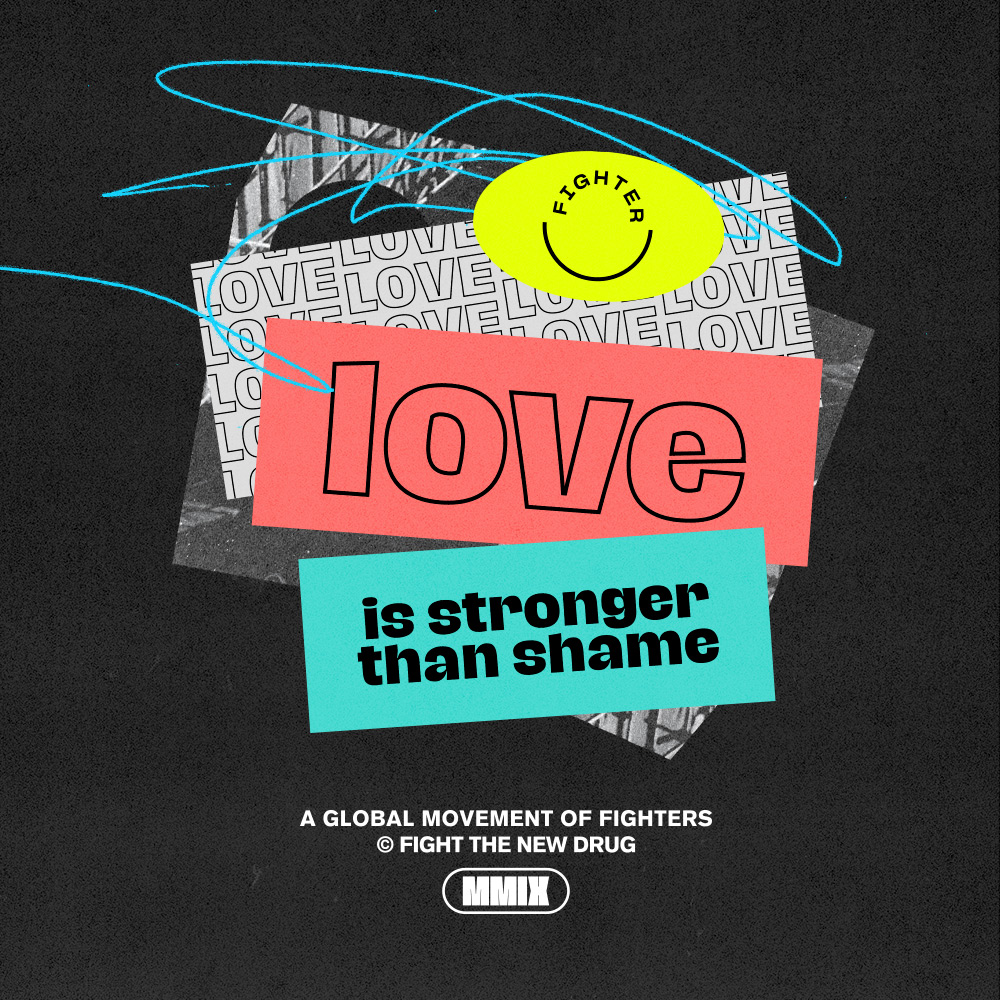Portions of the following post were originally published on Verily by Justin Petrisek. It has been edited for content and clarity. 7-minute read.
Have you ever wondered if the person you’re dating struggles with porn?
I’m guessing many people just assume their partners watch porn and accept that as the way things are. But take it from a guy—not all men watch porn (and most guys who do wish they didn’t), and not all women watch porn.
Pornography has become such a problem that celebrities are now posting videos and statistics on their websites and Twitter feeds trying to alert people to the harmful effects of porn. Recently, Terry Crews of the popular TV show Brooklyn Nine-Nine posted a series of videos revealing his past porn addiction and the utter unfulfillment that resulted from it.
A personal favorite celebrity PSA, however, came from Russell Brand when he posted a video on sex and the effects of pornography:
Our attitudes toward sex, he says, have become so warped that sex has now “deviated from its true function as an expression of love and a means for procreation.” “Icebergs of filth floating through the house on Wi-Fi,” Brand calls pornography. How scary and true is that image? Porn, whether on our iPhones or computers, is just one click away. That is our reality.
Someone doesn’t have to be an actual porn addict to struggle with porn. Porn is always in our face, thanks to hyper-sexual ads and porn sites at every wrong turn as we surf the web. I preemptively keep my computer, phone, and T.V. on pretty strict settings to filter out any explicit content, because honestly, I don’t want it around me. I don’t want to worry that ads are going to pop up while I’m doing research for class, just because search engines have figured out I’m a guy. I don’t want to worry that, just because I signed up to win World Series tickets, my inbox is going to get flooded with degraded naked women.
I can only speak from my experiences and other men I’ve spoken to, but you would not believe the lengths men have to go to to make sure they don’t get solicited by pornography on a constant basis.
Related: 7 Real Guys Reveal Why They Refuse to Watch Porn
So, you may be asking yourself: if it’s a problem for Terry and Russell, and if normal guys are concerned about being bombarded by it, is pornography something that my boyfriend or girlfriend struggles with (or has struggled with), too?
The short answer: probably yes.
The fact is, the majority of men and women have had some kind of exposure to pornography. Pornography issues analyst Daniel Weiss noted that more than 93% of men had consumed pornography by age 18. Most of them reported having consumed it for extended periods of time on numerous occasions. Another study found that about half of young adult women agree that consuming pornography is acceptable and 1/3 of young women reported consuming porn. Recently, the global porn industry was reported to be an estimated $97 billion venture—that’s about $3,075 spent on porn PER SECOND.
It’s pretty clear that porn is a global and relational issue: whether you want to admit it or not, porn needs to be discussed. So, how should you approach the conversation with your partner?
There is no easy how-to list or quick explanation when it comes to dealing with pornography. To help answer the big questions, I spoke with The Porn Effect’s Matt Fradd. Here are a couple of key things to keep in mind.
It’s okay to bring it up
A conversation about porn usually happens one of two ways. Either someone discovers the porn on a phone or computer, or someone brings up the issue voluntarily.
If you discover it, it’s okay to start the conversation. Try calmly saying something like, “I saw this and was wondering if this has been a long-time struggle and if it’s something that you are fighting to be free of.”
Maybe it was a bad decision he already regrets. But maybe it has been a prolonged struggle for her. Whatever the reason might be, it is too important an issue to ignore. But, it’s important to keep in mind that shame or guilting the person will not make the conversation go well.
Related: True Story: Shame Kept Me From Quitting Porn
It will not be helpful to ask for a detailed account of their porn experiences (the websites, the images, etc.), Fradd points out. We all have faults and struggles. Hashing out a play-by-play of their particular struggle could make them feel more ashamed and won’t be productive for the relationship or eventually overcoming the struggle.
As nice as it would be for your partner to take the lead with this difficult conversation, chances are it will be you who brings up the conversation, and that’s perfectly okay. If, however, they are the one to initiate the conversation, tell them that you appreciate them bringing this to light and recognize how much courage that must have taken. After you have discussed one another’s past or present struggle with porn (again, no excessive detail needed), don’t feel like you have to respond to any news right away. It’s okay to thank your partner and tell them that you need time to process everything. This news can often be shocking, so better to take the time to think about it than to react in the moment.
Should I break up with them?
One takeaway then is this: while it’s unhealthy to watch pornography, and life is better without it, that doesn’t mean the person who watches it is “bad” or would automatically make a bad partner.
It can be easy to villainize and condemn all porn consumers, regardless of how they started watching or why they continue to watch, but that would be unhelpful. This will sound super cliché, but we’re going to say it anyway–porn consumers are people, too. They’re your grocery store cashier, your best friend, your sibling, your classmate, your crush. They are people with great potential to be amazing partners, and defining their worth as based solely on their past experience with porn denies who they are as people with character and a personality and a heart.
So here’s an idea worth thinking about: even more important than a potential partner’s current experience with pornography, is that person’s attitude about their experience with porn. Don’t misunderstand what we’re saying. Clearly, it’s important to know how frequent someone is struggling with porn. That’s a fine question to ask someone you’re thinking of dating.
Related: 3 Reasons Why People Who Have Struggled with Porn Can Make Great Partners
In addition, though, it might be worth knowing why and how someone started watching porn – and what they think about it all: Why they continue to watch it, if they do? And are they doing anything to try and quit?
Compared to someone who watches porn, and doesn’t really care, for instance, you might find someone who is actively working to move away from using to be sensitive and impressive in unique ways.
An untold amount of porn consumers are loving, passionate and eligible men and women who are so engulfed in their habit that they feel trapped. They want to hide, and they can’t imagine feeling worthy of someone’s love. Sometimes people are using it as a coping mechanism for other painful things happening in their lives. Many times, they hear others focus so much on how hard it is to overcome pornography that they can come to believe they will never be able to quit.
We can’t tell you whether it’s right to be in a relationship with someone facing an active pornography problem. That’s something only you can decide. But we can tell you that love seeks to understand— and sometimes go beyond the way things seem at the surface.
Accountability and education
If your partner expresses a desire to stop consuming porn, your best bet is to challenge them to come up with a concrete plan of action and have them share with you what they are going to do to overcome their porn struggle.
Related: 5 Tips For Supporting Your Partner As They Kick Their Porn Habit
The best thing a partner can do if you decide to keep the relationship going is to make expectations clear, be supportive of the concrete measures your partner is taking, and educate yourself on the issues surrounding porn.
At the end of the day, we could all use a strong partner to encourage us, to challenge us, and maybe even to initiate that conversation when it is time. But in the end, what we really want is authentic love, and I think we can agree that that is something we are all struggling to find in a world that badly needs it.
Click here to read the original post by Justin Petrisek.
Your Support Matters Now More Than Ever
Most kids today are exposed to porn by the age of 12. By the time they’re teenagers, 75% of boys and 70% of girls have already viewed itRobb, M.B., & Mann, S. (2023). Teens and pornography. San Francisco, CA: Common Sense.Copy —often before they’ve had a single healthy conversation about it.
Even more concerning: over half of boys and nearly 40% of girls believe porn is a realistic depiction of sexMartellozzo, E., Monaghan, A., Adler, J. R., Davidson, J., Leyva, R., & Horvath, M. A. H. (2016). “I wasn’t sure it was normal to watch it”: A quantitative and qualitative examination of the impact of online pornography on the values, attitudes, beliefs and behaviours of children and young people. Middlesex University, NSPCC, & Office of the Children’s Commissioner.Copy . And among teens who have seen porn, more than 79% of teens use it to learn how to have sexRobb, M.B., & Mann, S. (2023). Teens and pornography. San Francisco, CA: Common Sense.Copy . That means millions of young people are getting sex ed from violent, degrading content, which becomes their baseline understanding of intimacy. Out of the most popular porn, 33%-88% of videos contain physical aggression and nonconsensual violence-related themesFritz, N., Malic, V., Paul, B., & Zhou, Y. (2020). A descriptive analysis of the types, targets, and relative frequency of aggression in mainstream pornography. Archives of Sexual Behavior, 49(8), 3041-3053. doi:10.1007/s10508-020-01773-0Copy Bridges et al., 2010, “Aggression and Sexual Behavior in Best-Selling Pornography Videos: A Content Analysis,” Violence Against Women.Copy .
From increasing rates of loneliness, depression, and self-doubt, to distorted views of sex, reduced relationship satisfaction, and riskier sexual behavior among teens, porn is impacting individuals, relationships, and society worldwideFight the New Drug. (2024, May). Get the Facts (Series of web articles). Fight the New Drug.Copy .
This is why Fight the New Drug exists—but we can’t do it without you.
Your donation directly fuels the creation of new educational resources, including our awareness-raising videos, podcasts, research-driven articles, engaging school presentations, and digital tools that reach youth where they are: online and in school. It equips individuals, parents, educators, and youth with trustworthy resources to start the conversation.
Will you join us? We’re grateful for whatever you can give—but a recurring donation makes the biggest difference. Every dollar directly supports our vital work, and every individual we reach decreases sexual exploitation. Let’s fight for real love:





